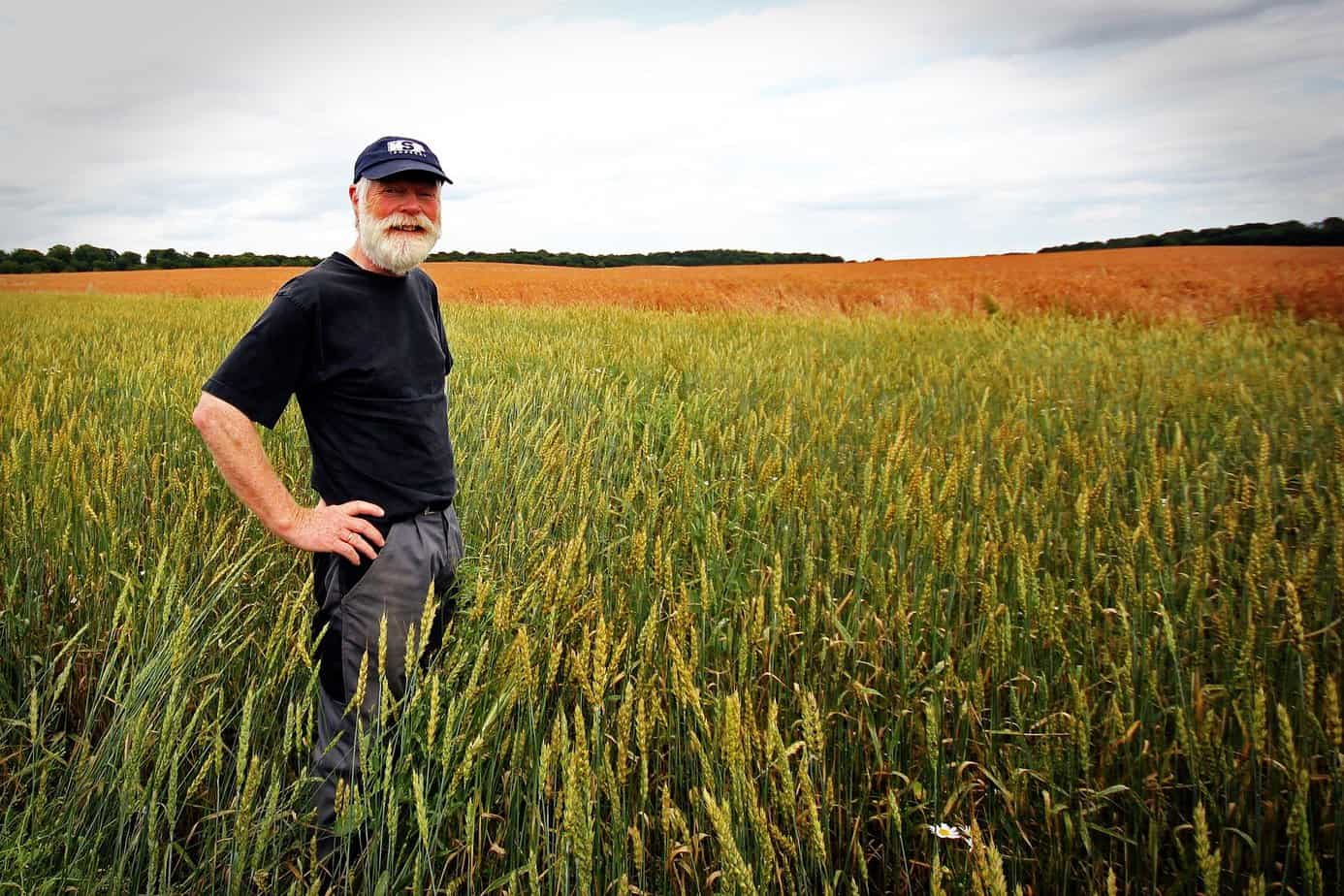If you’ve made the decision to go WWOOFing, you are probably raring to find a great WWOOF host. And why wouldn’t you be? WWOOF hosts really can make or break your overall WWOOFing experience on any given trip. Your whole purpose as a WWOOF volunteer – a WWOOFer – is to assist your host and learn about organic farming in the process, so of course, you’ll be spending a lot of time with them. For this reason, it’s important not only to find a farm that you really want to go to but a host that you really want to work with. In this article, I point out a few ways to find a great WWOOF host from over 1,800 registered on the WWOOF-USA website.
What to Look For in a Great WWOOF Host
WWOOF hosts are, by and large, a wonderful group of people. They welcome people into their home(stead)s from all over the world and teach them how to farm organically. And they teach people based on the best teaching resource available: their (often years of) experience. In 99% of cases, you won’t have to worry too much about whether you will be able to find a good WWOOF host. The question is how to find a great one for you. Here are our top three recommendations:
Figure out your ‘non-negotiables’ and conduct your search accordingly
Most people are probably going to get along just fine, but if you are the type of person who has some things you’re not willing to compromise on, you’d better act on those early in your search. For example, I don’t want to work with a host that focuses on raising meat animals and butchering. I’m a very strict vegetarian, and those activities conflict with my principles. Accordingly, when I search for a new WWOOF host, I filter out anyone involved in those areas of farming. It’s best for them that I’m not there nagging them about it as well! Similarly, if you do not want to be on a farm where people drink or use drugs (legal ones, of course), then you should ensure to filter your search for sober farms only.
If you don’t have non-negotiables, you should still keep an eye out for any views or activities in the host’s profile that may be a problem for you. Avoid potential areas of conflict where you can (especially as you will have to work as part of a team).
Find the best way to communicate with your host early on
When you first reach out to a host, it’s likely to be via email through the WWOOF-USA platform. In those first few messages, you will form an impression of the host from what they say, but try to remember that not everyone communicates well in all mediums. Your host may only send short messages via email, and that may put you off them. But that very same host may well chat for hours on the phone, and you’d love them!
Figuring communication out early is important. You want to make sure you aren’t missing out on any opportunities by dismissing someone based on their early messages. Similarly, you want the opportunity to get to know your host as well as possible before you commit to working with them. When you first message them, ask if they’d prefer to talk on the phone or via text. Communicating well in the early stages of finding a great WWOOF host can make all the difference to your experience later on.
Ask a lot of questions
The best WWOOF hosts get messages from people all the time. Unfortunately, many people see WWOOFing only as a way of traveling cheaply. They are, sadly, not committed to the broader goals of the WWOOF movement. If you really are committed to learning about organic farming and supporting a farmer in their mission, make it clear from the beginning by asking interesting and relevant questions. It will make you stand out from the people who only ask about local tourist spots, the best restaurants, and other things that don’t have much to do with farming. Here are some to consider:
- How long have you been farming?
- How did you decide which activities to undertake on your farm?
- Have you got full-time staff as well as WWOOFers on your farm?
- How do you make your farm economically sustainable?
- Why do you enjoy working with WWOOFers?
- What are you looking for in a WWOOFer?
- Describe your best experience with a WWOOFer so far. Why was it so good?
- What are your expectations for my placement?
- How can I best prepare to serve the needs of the farm?
- Is there anything in particular I would need to bring with me?
- Are there any skills I should begin practicing before my visit?
- Do you have any religious or lifestyle views/restrictions/beliefs I should know about?
What if money is brought up in our conversation?
As you are asking your questions, one thing to pay particular attention to is any money-related talk. It is a core characteristic of WWOOFing placements that no money is exchanged between the host and the volunteer. Volunteers are exactly that: volunteers. They should not be paid for their time, and likewise, the host should not be paid for accommodating and teaching the volunteer. The very essence of WWOOFing is that it is a mutual exchange. As such, if a WWOOF host asks you for money, you should not consider placing with them (instead, report them to WWOOF-USA for breaking the rules).
The only time money is exchanged in WWOOFing is if you and the host mutually agree to buy/sell something between you. You might, for example, buy some supplies from the host to use on your own organic farming projects. But the actual core activities of working and accommodating should be free.
How to Access the WWOOF Host List
If you are early in your WWOOFing career and you haven’t yet subscribed as a WWOOF-USA member, the good news is that you can still access the host list. All you have to do is visit the WWOOF-USA website and click on ‘Find a Host’.
Once presented with the full list of hosts, you can filter the database in a number of ways. Looking within a particular geographical area? You can search for a town or state or just zoom in on the map. Similarly, you can search for the name of a particular farm, or use the in-built search filters to limit results. Search filters include things like: location, languages spoken, methodologies used, accommodation type, certification status, weekend WWOOFing, WWOOFing with children, and position on smoking. You can also sort the results by current availability, relevance, and whether the host is new.
All of these factors combined give you an excellent way to find a great WWOOF host.
Where to Find WWOOF Host Reviews
This may be a fairly obvious one, but the first place to find WWOOF host reviews is on the WWOOF-USA website. If you’re a paid member, you will see a thumbs-up rating under the host’s profile picture, along with more detailed reviews. Non-paid visitors only see the thumbs up ratings.
The thumbs-up rating system alone (based on whether volunteers would recommend the host) doesn’t give you huge amount of detail, though. For more comprehensive reviews, you are going to have join WWOOF-USA or do some digging (online). Simply Googling the farm/host is a good place to start, and social media is a good place to go from there. Look for Facebook profiles and see what people are saying. Sometimes Google will also show reviews of the farm and that may give you an idea of what it’s like to work there. You may have to be a bit of a detective for some farms! That said, you’ll likely find something if they are an established host.
If you’re looking for something much more comprehensive, look online for WWOOFing blogs. Many bloggers will write about their experiences with hosts as well as their experience on the farm. WWOOFing blogs are excellent for this reason. With there being so many hosts, you won’t find reviews of all of them, but if you’ve got a particular farm in mind it can’t hurt to search around for a few minutes to see if anyone’s written about it before. You could even find reviews of the farm you like on this website!
Where Did You Find a Great WWOOF Host?
If you’ve already had a fantastic WWOOFing experience, how did you find your host? Have you got any advice to share with your fellow WWOOFers? Let us know in the comments below!


